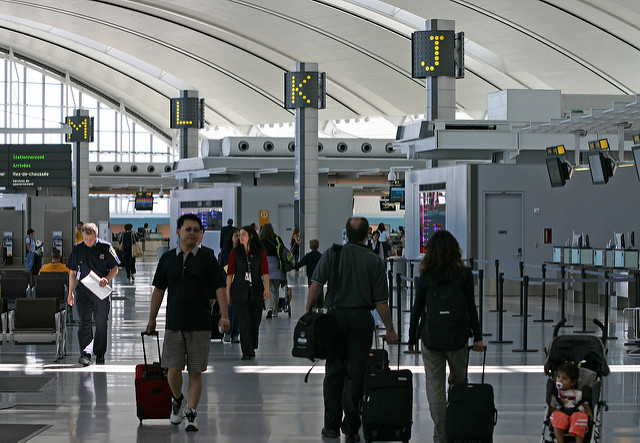If you’re a hen, you probably don’t want to hear that the farmer has hired a fox to advise on better ways to run the henhouse.
Similarly, if you’re a Canadian air traveller, you probably won’t be pleased to learn the Trudeau government has hired a major investment bank — which specializes in privatization — for advice as it ponders the pros and cons of privatizing Canada’s major airports.
Turning our airports into profit-making business ventures will almost certainly drive up the costs for air travellers, and the government insists that it has not yet made the controversial decision to proceed.
But the fact it’s seeking advice from Credit Suisse, a giant investment bank with fingers deep into the privatization business, suggests Ottawa has already moved well down that road.
Certainly, Zurich-based Credit Suisse has for the past decade been a major global player in the lucrative business of privatizing government infrastructure, including airports. Indeed, in 2009, Credit Suisse bought Gatwick Airport in the U.K., through a joint venture with General Electric. Credit Suisse also recently indicated an interest in advising the Russian government on its plans to privatize some major Russian state-owned enterprises.
So the Trudeau government, which has asked Credit Suisse to report back before the end of the year, can count on an earful of advice about the wonderful benefits of airport privatization.
But while selling our airports would mean hundreds of millions of dollars in profits for the banks and law firms involved in the deals, aviation authorities say Canadian air travellers would face higher costs to cover corporate profits.
In a joint article published this week, Mark Laroche, CEO of Ottawa International Airport Authority, and Craig Richmond, CEO of Vancouver Airport Authority, dismissed the notion that privately owned airports would manage to make profits simply by, for instance, “selling more lattes.”
Instead, Laroche and Richmond insisted passengers could expect higher parking costs, airport improvement fees, cuts in cleaning staff and the end of services such as free Wi-Fi.
Privatization would also mean our major airports would be run by corporate boards, whereas they’re currently run by non-profit airport authority boards that include local community representatives, who are focused on more than profit-making.
The current non-profit model appears to be working well — with our airports paying the government $1 billion a year in fees. Even so, the Liberals are pondering selling them in order to pay for billions of dollars in new infrastructure investment spending which they promised in last fall’s election campaign.
While Canada needs new infrastructure, there’s no evidence Canadians want our airports sold to pay for it — or that this is even a sensible plan. In Ontario, where the Liberal government is selling Hydro One to pay for new infrastructure, the province’s Financial Accountability Officer reported that the privatization will leave Ontario worse off financially in the long run.
Still, it’s not surprising the Trudeau government is toying with the airport sell-off since it’s getting advice almost exclusively from the corporate sector, which is salivating at the prospects.
Business has been quietly pushing for airport privatization through former cabinet minister David Emerson, who headed a government transportation policy review, which was started under Stephen Harper and completed under the Trudeau administration. Emerson, who relied on a large team of corporate and investment advisers, produced a two-volume report this winter keenly promoting the idea of selling our airports.
Airport privatization also got an enthusiastic thumbs-up from the 14-person economic council assembled by Finance Minister Bill Morneau. Like the Emerson review team, Morneau’s advisory council reads like a who’s who of the business world, and contains no labour representatives or anyone who could be expected to represent the broader public interest.
So, as this extremely dubious idea is being rushed towards realization — probably in time to be included in February’s budget — there’s been no input from what could pass for an ordinary person even though privatization would affect the millions of ordinary people who pass through our airports.
By the time Credit Suisse delivers its advice by year’s end, the finance minister will have opinions on airport privatization that run the full gamut from “thumbs-up” to “thumbs-very-high-up.”
Anyone who might question the airport privatization plan is unlikely to have face-time with Morneau — unless of course such a person happens to get invited to one of the intimate Liberal fundraisers the minister has recently been holding.
Linda McQuaig is a journalist and author. Her book Shooting the Hippo: Death by Deficit and Other Canadian Myths was among the books selected by the Literary Review of Canada as the “25 most influential Canadian books of the past 25 years.” This column originally appeared in the Toronto Star.
Photo: Dan Zen/flickr



